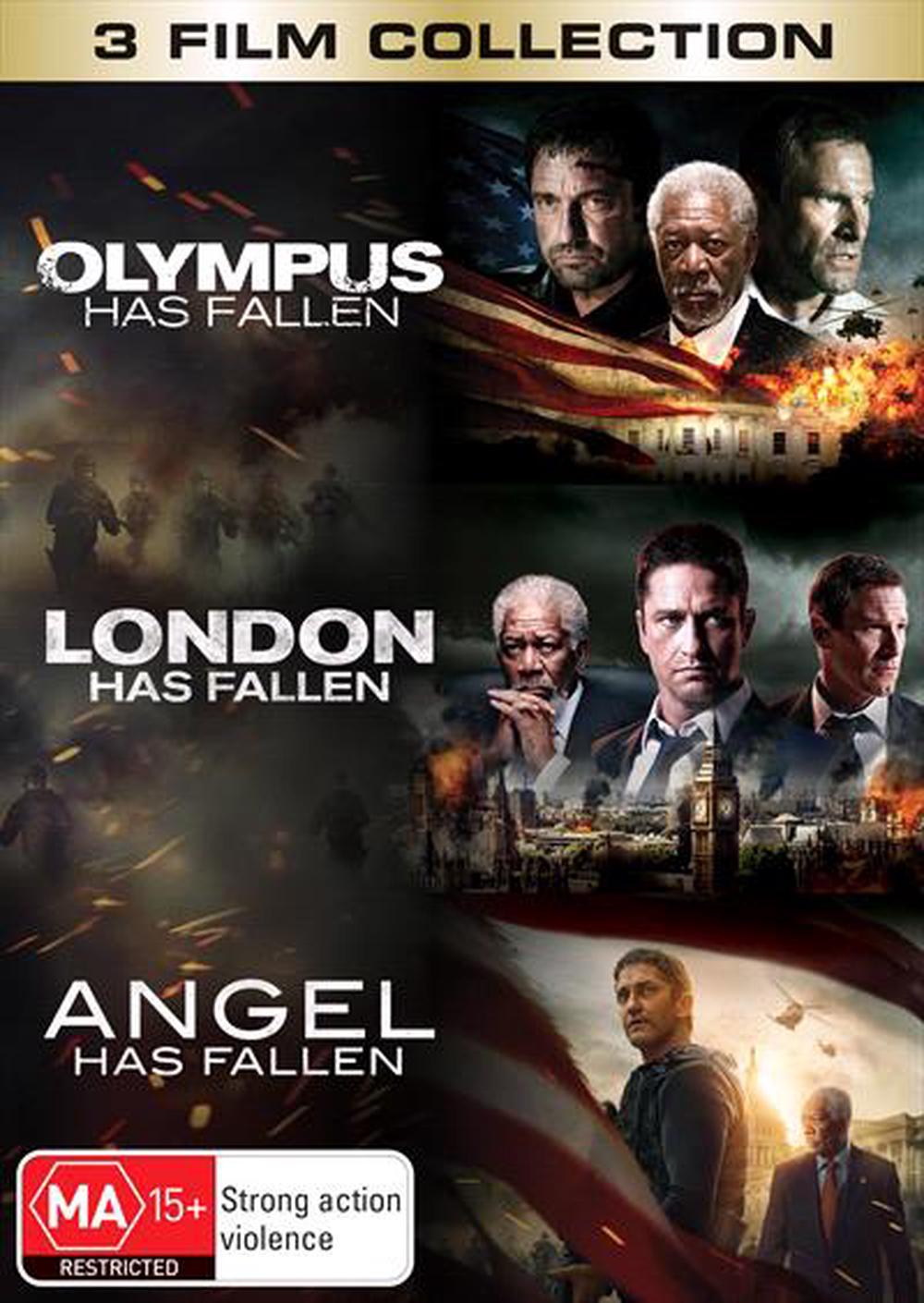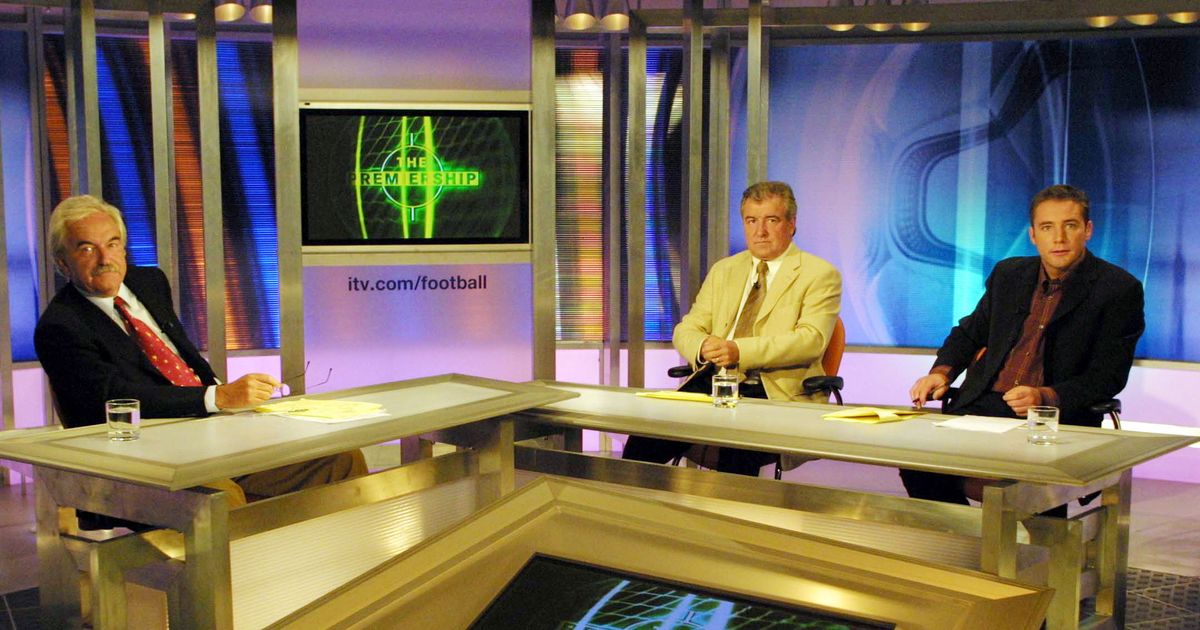Angel Has Fallen: Comparing It To Olympus Has Fallen And London Has Fallen

Table of Contents
Plot Similarities and Differences Across the Trilogy
The Fallen trilogy shares a common thread: Mike Banning, a dedicated Secret Service agent, consistently finds himself at the heart of devastating attacks against the United States. However, the nature of the threats and Banning's role evolve significantly throughout the series.
The Central Threat
- Olympus Has Fallen: This film introduces the premise with a coordinated terrorist attack that seizes the White House. The threat is immediate, focused, and intensely personal for Banning, who is tasked with saving the President.
- London Has Fallen: The scale escalates drastically. A global terrorist plot targets the funeral of a world leader in London, turning the city into a warzone. The threat is widespread, requiring international cooperation (or the lack thereof).
- Angel Has Fallen: This installment shifts gears. While terrorism is still a factor, the central conflict revolves around a personal betrayal and a conspiracy within the Secret Service itself. The threat becomes more intimate and focused on Banning's reputation and relationships.
Banning's Role
Mike Banning's journey is a key element of the trilogy's success. He starts as a loyal, highly skilled agent in Olympus Has Fallen, quickly becoming a reluctant hero. In London Has Fallen, he's established as a crucial figure in protecting the President on the world stage, demonstrating increased leadership. Angel Has Fallen sees him grappling with personal demons and fighting to clear his name, revealing a more vulnerable and introspective side to the character. His responsibilities shift from primarily protecting the President to fighting against a vast conspiracy that threatens his life and career.
- Olympus Has Fallen: Banning is the unlikely hero, showcasing his skills and dedication amidst chaos.
- London Has Fallen: Banning takes on a leadership role, coordinating efforts to combat the widespread attack and rescue survivors.
- Angel Has Fallen: Banning confronts a more personal threat, showcasing his resilience and determination while wrestling with inner turmoil.
Action Sequences and Visual Style
The Fallen films are known for their intense action sequences. However, the style and scale evolve across the series.
Action Choreography and Scale
Each film boasts impressive action choreography, but Olympus Has Fallen focuses on close-quarters combat within the White House, creating a claustrophobic intensity. London Has Fallen expands the scale with large-scale destruction and city-wide chaos. Angel Has Fallen features a more balanced mix, with intense close-combat alongside broader action sequences in rural settings. The use of special effects also progresses, becoming more sophisticated with each installment.
Locations and Setting
The settings play a crucial role in establishing the tone and atmosphere.
-
Washington D.C. (Olympus Has Fallen): The iconic White House setting creates a sense of immediacy and vulnerability.
-
London (London Has Fallen): The vastness of London provides a sense of scale and global impact, emphasizing the far-reaching effects of the terrorist attack.
-
Rural Landscapes (Angel Has Fallen): The shift to rural settings adds a different kind of tension, emphasizing the isolation and personal nature of the threat.
-
Standout Action Sequences: The White House assault in Olympus Has Fallen, the London street battles in London Has Fallen, and the intense car chases and shootouts in Angel Has Fallen are all noteworthy.
-
Cinematic Techniques: The films utilize slow-motion, close-ups, and dynamic camera angles to enhance the impact of the action.
Character Development and Supporting Cast
While action is central, character development enhances the Fallen trilogy.
Mike Banning's Arc
Banning's transformation is the trilogy's backbone. He evolves from a capable but somewhat understated Secret Service agent to a battle-hardened leader. The emotional weight of each film’s events leaves its mark, deepening his character and enhancing his determination. His relationship with President Trumbull (Morgan Freeman) forms a crucial aspect of his journey.
Supporting Characters
The supporting cast contributes significantly to each film’s narrative. While the focus remains on Banning, characters like Lynne Banning (his wife) and various Secret Service colleagues provide emotional depth and add complexity to the plots. Their roles evolve over the course of the trilogy, adding layers to the overall narrative.
- Banning's Relationship with the President: The bond between Banning and President Trumbull is a central element, showcasing loyalty, respect, and mutual trust.
- Other Significant Characters: The portrayal of Lynne Banning provides a critical emotional counterpoint to Banning's intense professional life.
- Supporting Cast Effectiveness: Each film benefits from a strong supporting cast that enhances the believability of the storyline and emotional impact.
Critical Reception and Box Office Performance
The Fallen trilogy has received a mixed critical response, with the first film generally receiving more positive feedback than the sequels.
Critical Reviews
Olympus Has Fallen garnered positive reviews for its action sequences and Gerard Butler's performance. London Has Fallen and Angel Has Fallen, while commercially successful, received more mixed reviews, with some criticism aimed at the increasingly over-the-top plots.
Box Office Success
All three films were commercially successful, exceeding their budgets significantly. London Has Fallen benefited from the success of its predecessor and the international appeal of the story.
- Key Criticisms and Praises: The films have been praised for their action and Butler's performance, while receiving criticism for plot contrivances and character depth in the later installments.
- Box Office Numbers: Each film performed well, demonstrating audience demand for this type of action-thriller.
Conclusion: The Lasting Impact of the Fallen Trilogy
The Fallen trilogy offers a compelling blend of action, political intrigue, and character development. While Olympus Has Fallen established the premise and introduced Mike Banning, London Has Fallen expanded the scale, and Angel Has Fallen delivered a more personal and introspective narrative. While the critical response varies, the films' commercial success confirms their lasting appeal. Personally, I find Olympus Has Fallen to be the strongest entry, its focused plot and intense White House siege creating a gripping and unforgettable cinematic experience.
Which Fallen film is your favorite? Share your thoughts on the Fallen trilogy below! Dive into the world of the Fallen films!

Featured Posts
-
 Novela Zakona O Romski Skupnosti Kaj Prinasa Javna Obravnava
May 13, 2025
Novela Zakona O Romski Skupnosti Kaj Prinasa Javna Obravnava
May 13, 2025 -
 Join A Didcot Dog Walk To Support Mental Health Awareness Week
May 13, 2025
Join A Didcot Dog Walk To Support Mental Health Awareness Week
May 13, 2025 -
 Essential Efl Highlights Dont Miss Out
May 13, 2025
Essential Efl Highlights Dont Miss Out
May 13, 2025 -
 Latest Obituaries A Tribute To Our Communitys Deceased
May 13, 2025
Latest Obituaries A Tribute To Our Communitys Deceased
May 13, 2025 -
 Report Tory Lanez Seriously Injured After Prison Stabbing Hospitalized
May 13, 2025
Report Tory Lanez Seriously Injured After Prison Stabbing Hospitalized
May 13, 2025
